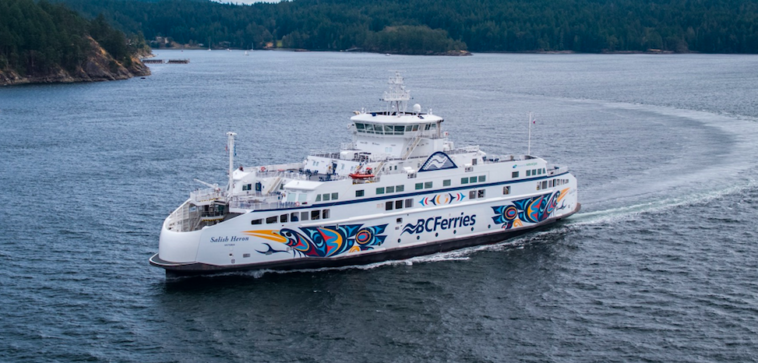BC Ferries constantly advertises hot holiday deals on fares and hotels and just introduced a slick new app for passengers to plan and book sailings. But the provincial corporation’s biggest problem is not luring new passengers–but keeping workers and finding new ones.
Seafaring can be a tough job–but somebody has to do it.
“The crisis is here!”
Alex Rueben, Association of B.C. Marine Industries
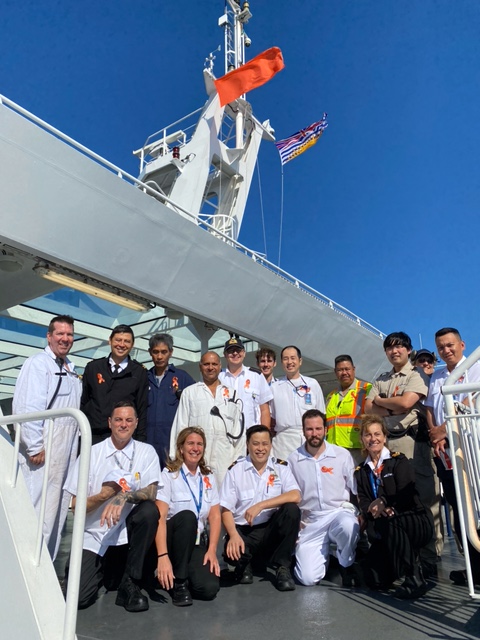
The ferry fleet needs hundreds of new workers just to keep its ferries running. Sailing cancellations caused by staff shortages, sometimes with only a few hours’ notice, have become frustratingly routine.
Without enough people even to operate kitchen dishwashers, onboard cafes are serving many hot meals in disposable boxes with wood utensils instead of on the fleet’s traditional china plates with cutlery.
And experts say the problem is only going to get worse.
That’s because the shortage of seafaring workers goes far beyond BC Ferries–which currently has more than 500 jobs open in roles from customer service to skilled trades to management.
B.C.’s entire marine sector is threatened by a lack of skilled labour, warns Alex Rueben of the Association of B.C. Marine Industries. “The crisis is here!” he wrote in Western Mariner magazine recently, citing studies that say thousands of new workers are needed to sustain B.C.’s 1,100 marine companies.
When one person calls in sick and there’s no replacement, “the vessel cannot sail legally.”
Dhaval Shah, associate dean of the school of transportation, BC Institute of Technology.
Organizations on land can usually work without a full crew, noted Dhaval Shah, a former seafarer and industry executive who is now associate dean of the school of transportation at the BC Institute of Technology. But at sea, federal regulations and safety require a full crew of qualified people. When one person calls in sick and there’s no replacement, “the vessel cannot sail legally.”
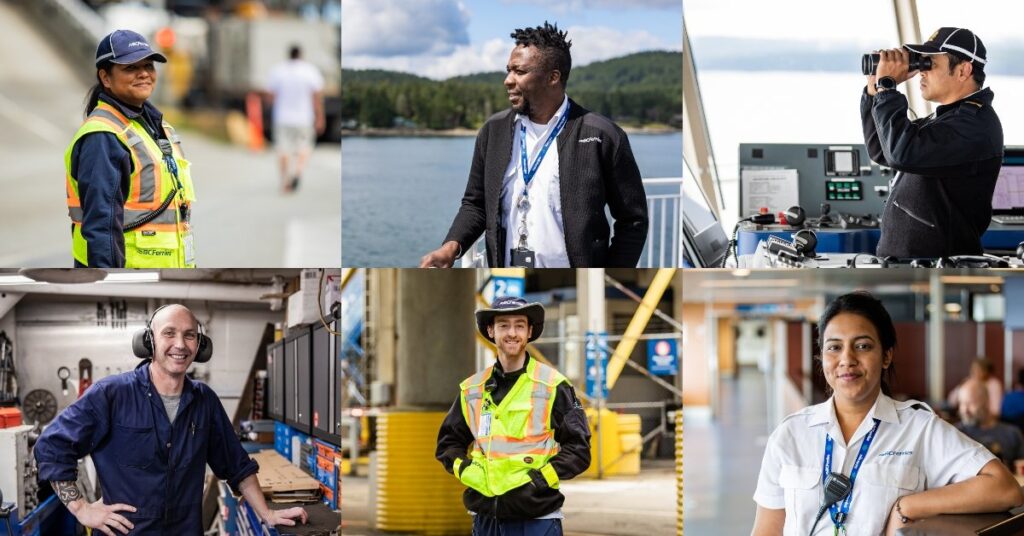
Source: BC Ferries on Facebook.
There’s no longer “the expectation in a B.C. community that a career on the water is a good life.”
Peter Hall, professor of urban studies at Simon Fraser University
Part of the problem is a Canadian-wide general worker shortage affecting all sectors, says Peter Hall, professor of urban studies at Simon Fraser University. Generally, wages fall below workers’ expectations, inflation, and housing costs. That’s complicated by an aging population and a reluctance among young people to move into trades, he said.

Source: SFU.
Hall noted that B.C.’s seafarer shortage has been made worse by a long-term decline in B.C.’s coastal economy, causing “a generalized loss of skills in our coastal communities.” Many coastal residents who in previous times might have gone to sea instead moved away. There’s no longer “the expectation in a B.C. community that a career on the water is a good life,” Hall wrote in an email to West Coast Now.
Eric McNeely, provincial president of the BC Ferry & Marine Workers’ Union, agreed. For generations, youngsters raised in coastal logging and fishing families learned skills from childhood and could easily move into marine transportation jobs. Not only have those industries declined, but for safety reasons, Transport Canada now requires training and certification for mariners, and education costs can be a barrier to entry, he said.
“Is that the employment model that can attract and retain young people today? Does it secure the increasingly specialized skills?”
Peter Hall, professor of urban studies at Simon Fraser University
Another issue faced by BC Ferries specifically, wrote Hall, is “a seniority-based employment model which works for people who want to, and can afford to, work their way up. The bargain is fine … when both employer and employee are committed for the long haul – you work nights/weekends cleaning now so that in 20 years you will be trained and secure prime shifts.”
“Is that the employment model that can attract and retain young people today?” asked Hall. “Does it secure the increasingly specialized skills? Hard questions for an employer like BC Ferries and for unions representing these workers.”
McNeely said that as the largest employer on the Coast, BC Ferries could recruit and keep more workers by investing in people’s careers and job satisfaction–as well as better salaries. BC Ferries needs to create “a work environment where people want to work and still want to pay their bills … It needs a coaching program, not a poaching program.”
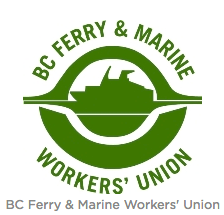
Credit: BCFED.
BC Ferries competes for skilled marine workers with all other marine employers. For many jobs, the ferry system pays less than competitors like Seaspan, which is currently recruiting for 88 positions. The biggest difference is in pay for ferry deckhand and bridge watch workers. At BC Ferries, these positions pay nearly 25% less than at Seaspan, noted a report by BC Ferries filed with the BC Ferry Commission this month.
This summer, BC Ferries and the union have agreed to start talks aimed at boosting pay rates years before the existing contract expires.
But pay rates are only part of the problem: the entire marine sector in B.C. needs more trained seafarers.
Even though B.C. has a massive coastline and relies on its “marine highway,” seafaring has not been promoted as a career choice, said McNeely. Of the young people in his family circles, he said, “I can’t think of any career counsellors who have ever mentioned it, ever.”
That has begun to change. Shah noted that the marine industry, unions, schools, governments, and regulators, have started working together to attract more workers to maritime industries. There is government funding for training through the federal Oceans Protection Plan, promotions in schools and at career days to recruit young people, and special programs aimed at recruiting people who are underrepresented in marine industries, including Indigenous groups, women, and new immigrants.
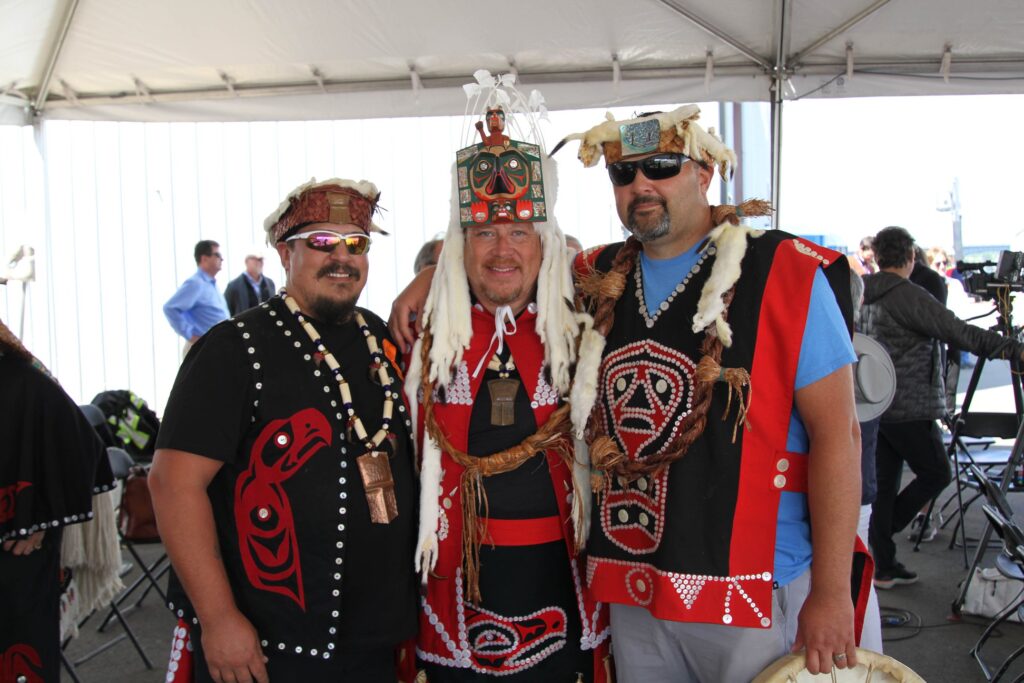
Source: BC Ferries on Facebook.
The recruiter’s pitch, he said, includes the industry’s relatively high pay rates, and unique lifestyle, from the team culture on ships at sea, long breaks in between shifts, and at some marine employers like B.C. Ferries, the attraction of being able to go home each night.
Seafaring can be a rewarding career, Shah tells prospective mariners. He cites the example of a deck officer who can graduate from a four-year co-op program at BCIT, and immediately have their pick of an entry level job starting at $80,000 to $100,000.
“But it’s not going to change tomorrow,” said Shah.


